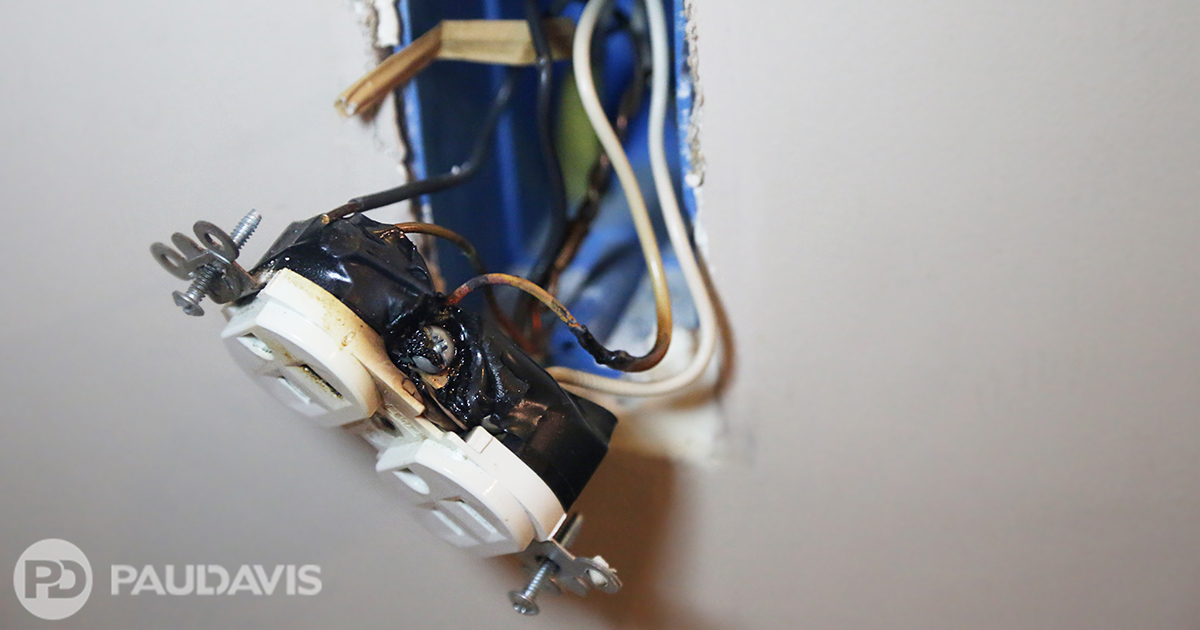
Listening to the lively conversation, Marcy leaned against the living room wall and felt an odd sensation: that spot felt hot to the touch. Fortunately, one of her visitors saw Marcy’s puzzlement and immediately knew this could be an emergency. “Call a professional now,” the visitor said. “Don’t wait until the party is over.” The electrician arrived and uncovered a smouldering short circuit hidden behind the wall. If Marcy had waited, her home could have been destroyed in a fire.
“Electrical wiring doesn’t last forever,” advises John Gugliotta, Owner of Paul Davis of Boston South, Boston Metro West, and Rhode Island, MA. “Too many things change as wiring ages. Technology improves, new safety features are added, materials degrade, and frequent use damages connections, to name just a few.”
How do you know when your wiring is due for maintenance or updating? Gugliotta gives customers a list of questions designed to flag troubled wiring. Answer yes to any of these seven queries and it’s time to call a professional to evaluate your home’s electrical system
- Was your home built more than 40 years ago? Older residences contain antiquated wiring systems: wires insulated with cloth that becomes brittle, for example, or even ceramic knob-and-tube systems in homes built from the 1800s through the 1930s that lack grounding capabilities.
- Do your circuit breakers trip often? This is a sign that your circuits aren’t equal to the amount of electrical current running through them.
- Do you get shocks or tingling if you touch certain switches, appliances or outlets? These alarming events signal that current is escaping its connections and electrifying nearby materials – including you. This serious hazard requires immediate correction.
- Do your lights dim or flicker? If lights dim regularly when weather is calm - or when you use a switch or outlet - it often indicates loose connections or overloaded circuits.
- Do you smell burning, see discoloration or feel warmth from an appliance, switch, outlet, or unidentified source? These are also signs that current is escaping its connections and contacting nearby materials. This is another emergency that requires immediate professional attention.
- Do your outlets accept only two-pronged plugs? Older outlets did not include a grounding prong receptacle because the cable feeding them lacked a grounding wire. Grounding is an essential safety feature.
- Do wet areas – bathrooms, kitchens and the like - lack ground fault circuit interrupter (GFCI) outlets? GFCIs have saved countless lives by detecting escaping current and shutting off the power in milliseconds – an especially important safety feature when electricity is used near water.
“Tens of thousands of home electrical fires occur each year,” Gugliotta concludes. “Asking yourself a few simple questions now about your home electricity can save lives and properties. And don’t forget to make sure your smoke detectors work!”
